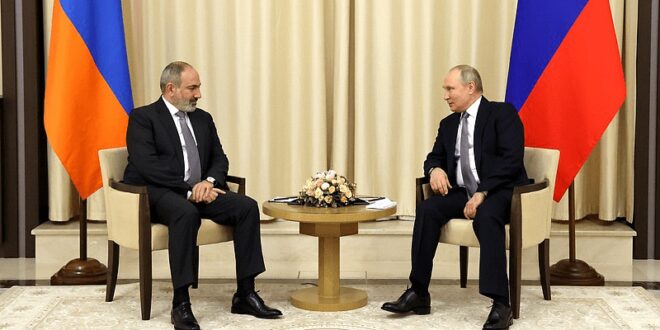Weeks after the Armenian government accused Russia of fomenting a rebellion, authorities in Yerevan have yet to present substantiating evidence.
Citing the ongoing investigation, Armenian officials have not provided updates on the alleged coup plot beyond the broad, initial accusation made on September 18. At that time, representatives of Armenia’s prosecutor’s office asserted Russian agents were active in trying to recruit Armenian nationals to form an armed group intent on toppling Prime Minister Nikol Pashinyan’s administration.
The supposed recruits were said to receive training at a Russian Defense Ministry-operated camp inside Russia, dubbed “ArBat.” Further details about the camp, including its location, have not been publicly revealed. RFE/RL identified one of the suspected leaders of the coup conspiracy as Serob Gasparyan, the leader of the radical group Sev Hovaz (Black Panther) and a vocal critic of Pashinyan’s leadership. His lawyer, Gurgen Grigoryan, denied all charges on Gasparyan’s behalf.
Russian officials have likewise labeled the Armenian government’s allegation as “fake” news. “The attempts of a number of Armenia’s officials to spin the report of the Investigative Committee of Armenia on preventing the coup attempt, to find some Russian trace in it, are absurd,” said Russian Foreign Ministry spokeswoman Maria Zakharova.
Maintaining a straight face, she added that “unlike the West,” the Kremlin does not meddle in the affairs of other countries.
A battalion comprising Armenians is known to be fighting as part of the pro-Russian Pyatnashka International Brigade in Ukraine. This group, sometimes compared to the mercenary Wagner Group, has deep ties to Russian military and intelligence services, raising concerns about Moscow’s involvement in efforts to destabilize foreign governments.
This is not the first time Pashinyan’s embattled government has cried coup as it tries to forge a peace deal with Azerbaijan in the face of significant domestic opposition. In 2023, authorities aired similar coup plot accusations. Such instances underscore the ongoing political instability in Armenia, where opposition factions are openly disillusioned by the government’s handling of national security and foreign policy.
Amid the coup attempt controversy, a Russian hacker group announced it had broken into the database of the Armenian Prime Minister’s Office, demanding a $2.5 million ransom to release the files. The government announced it was investigating the case, but no further information has been made public. Data security experts have downplayed the seriousness of the attack.
Prior to 2020, Armenia and Russia were strategic partners. But the Armenian government has moved to bolster relations with the West over the past year, while accusing Russia of failing to fulfill security guarantees and treaty obligations during the Second Karabakh War, which ended with Azerbaijan’s reconquest of the contested territory. In a statement issued in mid-September, Pashinyan reaffirmed that Armenia’s pivot toward the West will continue, adding that Yerevan will apply for EU membership at the first “realistic opportunity.”
Pashinyan also has announced that Armenia is nearing the “point of no return” in its participation in the Russian-led Collective Security Treaty (CSTO). Yerevan recently boycotted a CSTO foreign ministers’ meeting, as well as skipped joint military exercises held by member states that kicked off on September 26.
 Eurasia Press & News
Eurasia Press & News




